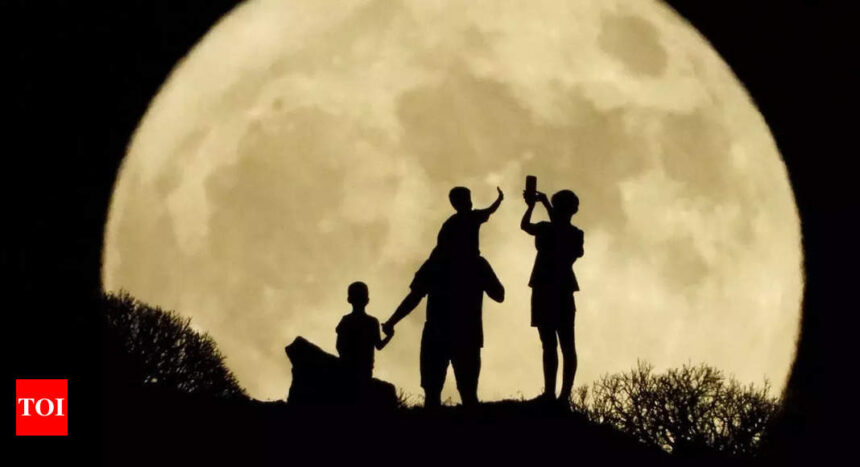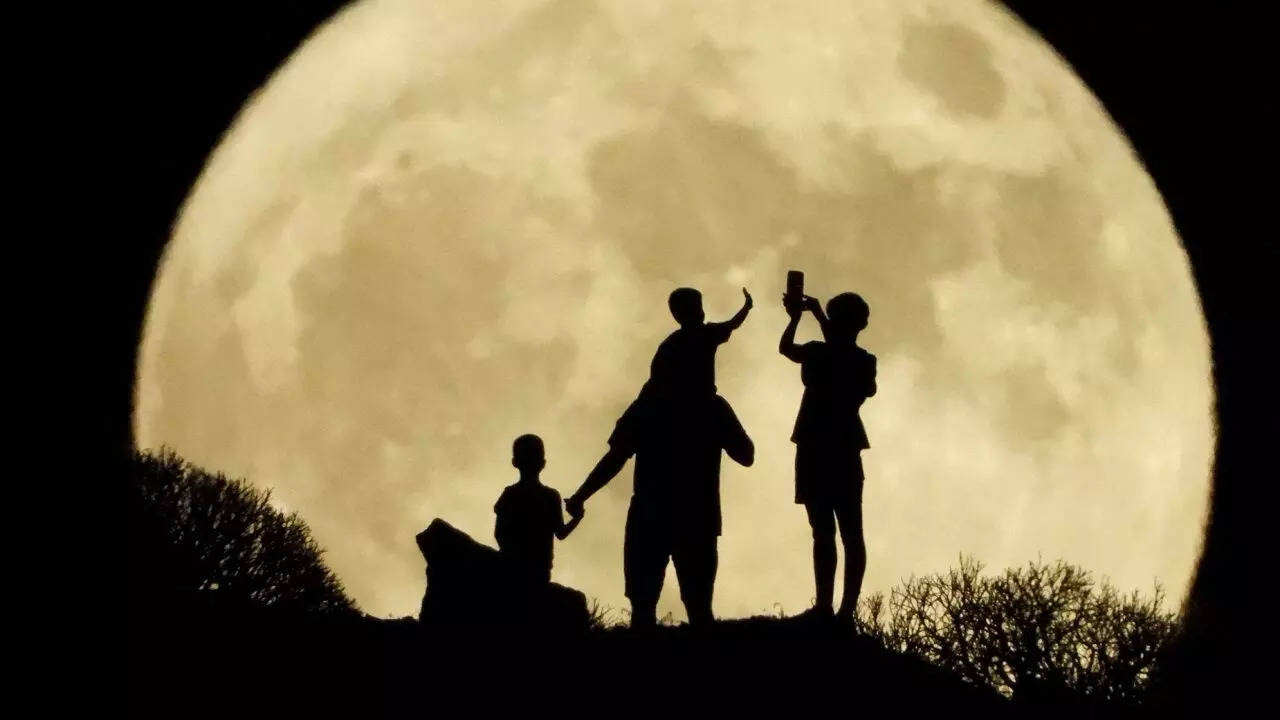September’s Full Harvest Moon promises to be a spectacular celestial event, combining the qualities of a supermoon with the effects of a partial lunar eclipse. The full moon, which will rise on the evening of September 17, is set to be a noteworthy sight for skywatchers, as per Space.com.
A Supermoon and a Partial Eclipse
This month’s Full Harvest Moon will not only just appear slightly larger than usual due to its status as a “supermoon,” but it will also be accompanied by a partial lunar eclipse.A supermoon occurs when the moon is at or near perigee, its closest approach to Earth in its slightly elliptical orbit. While the difference in size can be subtle, it can enhance the moon’s visual impact.
The partial lunar eclipse will be visible from most of North America, South America, Europe, western Asia, Russia, and parts of Antarctica. During this event, Earth will pass between the sun and the moon, casting its shadow on our only natural satellite. Though only the upper portion of the moon will enter the darkest part of Earth’s shadow, known as the umbra, the eclipse will still offer a contrast on the moon’s surface, visible for those using telescopes or binoculars.
Timing and viewing
For observers in the Eastern time zone of the United States, the eclipse’s darkest phase will occur around 10.44pm EDT on September 17. In Europe and Africa, the eclipse will be visible during the pre-dawn hours of September 18, with the peak of the eclipse in London occurring around 3:45am BST.
A Supermoon and a Partial Eclipse
This month’s Full Harvest Moon will not only just appear slightly larger than usual due to its status as a “supermoon,” but it will also be accompanied by a partial lunar eclipse.A supermoon occurs when the moon is at or near perigee, its closest approach to Earth in its slightly elliptical orbit. While the difference in size can be subtle, it can enhance the moon’s visual impact.
The partial lunar eclipse will be visible from most of North America, South America, Europe, western Asia, Russia, and parts of Antarctica. During this event, Earth will pass between the sun and the moon, casting its shadow on our only natural satellite. Though only the upper portion of the moon will enter the darkest part of Earth’s shadow, known as the umbra, the eclipse will still offer a contrast on the moon’s surface, visible for those using telescopes or binoculars.
Timing and viewing
For observers in the Eastern time zone of the United States, the eclipse’s darkest phase will occur around 10.44pm EDT on September 17. In Europe and Africa, the eclipse will be visible during the pre-dawn hours of September 18, with the peak of the eclipse in London occurring around 3:45am BST.
Source : Times of India









